
Understanding Fat Tire eBikes
How Fat Tire eBikes Differ from Standard eBikes
Fat tire eBikes come equipped with tires typically 4 inches wide or more — nearly double that of a standard bike. These oversized tires aren't just for show; they’re built to tackle terrain that would make most bikes cry for help.
The Rise in Popularity of Fat Tire eBikes
From mountain trails to snow-covered roads, riders are embracing fat tire eBikes as their go-anywhere companions. Their ability to adapt to diverse landscapes has made them favorites among adventurers and commuters alike.
Pros of Fat Tire eBikes
Superior Traction and Stability
One of the biggest benefits is the unbeatable grip. Whether you're riding over loose sand, gravel, or icy roads, fat tires cling to the surface like Velcro.
-
All-Terrain Capability: Fat tires shine in off-road environments. They're the SUV of the eBike world.
-
Handling Mud, Sand, and Snow: From the beach to backcountry, you can roll over almost anything.
Enhanced Comfort
Fat tires act like natural shock absorbers, smoothing out bumps and vibrations that would rattle your bones on a traditional bike.
- Great for Long Rides: Less impact means less fatigue over time.
Better Control and Balance
Because of their larger surface area and lower pressure, fat tires offer excellent balance.
- Especially for New Riders: If you're new to cycling or returning after years, the stability is reassuring.
- Reduced Chances of Tipping: Those wide tires keep you planted.
Year-Round Riding
Fat tires don't fear winter.

- Ideal for Winter and Rainy Weather: Grip stays consistent, even on slick surfaces.
- Tire Pressure Adjustments for Versatility: Lower PSI for snow, higher for city riding — it's like customizing your experience.
Cons of Fat Tire eBikes
Heavier Weight
With bigger tires comes more mass.
- Impact on Handling and Portability: Don’t expect to lift it effortlessly into your car trunk.
- Battery Drain Consideration: More weight = more battery consumption, especially on hills.
Slower Acceleration and Speed
These bikes aren't built for speed demons.
- Not Built for Racing: If you're all about zipping through traffic, you might feel sluggish.
- More Effort on Pedal-Assist: You’ll need to lean on the motor a bit more.
Higher Cost
Bigger wheels and custom frames come at a premium.
- Tire and Rim Costs: Replacements aren’t cheap.
- Specialized Frame Requirements: Not all accessories fit fat tire bikes.
Maintenance Challenges
- Harder to Repair: Not all bike shops stock fat tire parts.
- Tire Replacement Costs: Fat tires are more expensive and less common.
Featured Models: VICTRIP eBikes
VICTRIP R6 Off-Road eBike
If you're serious about off-roading, the VICTRIP R6 is your rugged companion.
- Key Features: Dual suspension, 4.0-inch fat tires, powerful motor.
- Best Use Cases: Forest trails, rocky climbs, and muddy terrain. The R6 doesn't flinch when the going gets tough.
TOP PICK
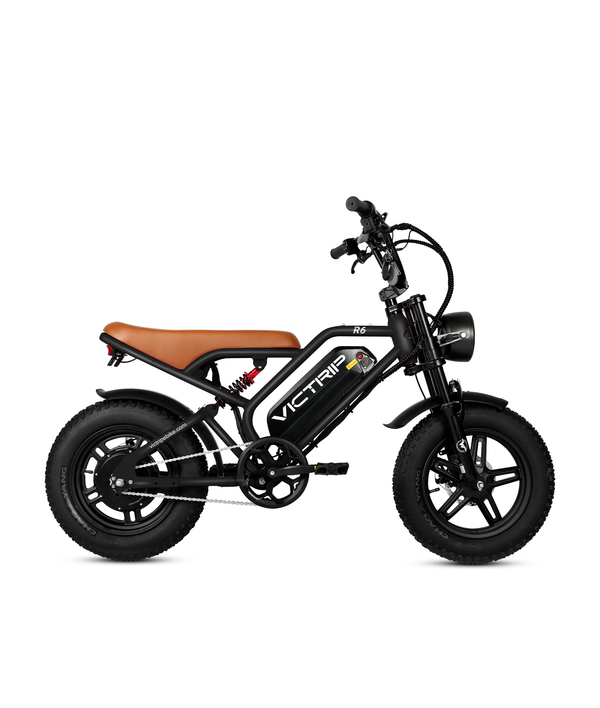
VICTRIP®R6 Off Road Ebike
VICTRIP Surnat N12 2000W Electric Bike
This beast is built for power and distance.
- High-Power Performance: A 2000W motor gives the VICTRIP Surnat N12 the muscle to handle steep hills and heavy loads.
- Ideal Terrains: Perfect for snow, mountain trails, and even city potholes. The extra wattage makes up for the tire drag, offering an effortlessly powerful ride.
TOP PICK
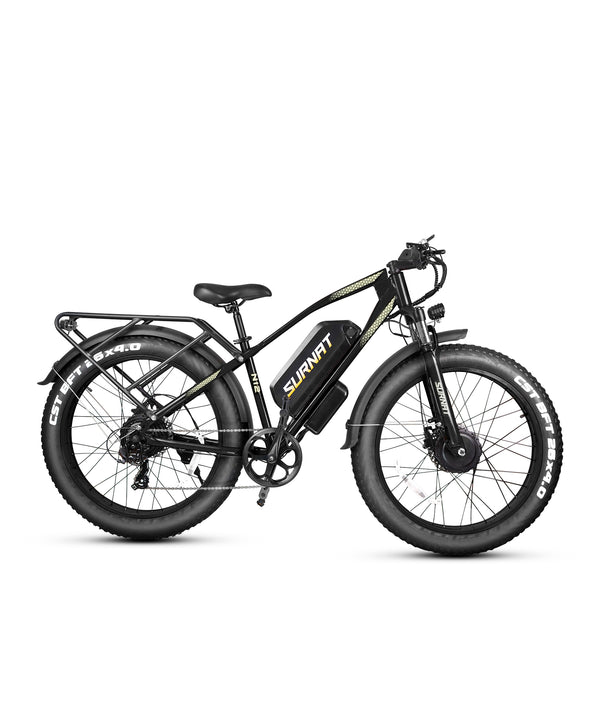
VICTRIP®SURNAT N12 2000W Electric Bike
Fat Tire vs Regular Tire eBikes
| Feature | Fat Tire eBike | Regular Tire eBike |
|---|---|---|
| Terrain | All-Terrain | Mostly paved roads |
| Comfort | High | Moderate |
| Speed | Moderate | Higher |
| Maintenance | Higher | Lower |
| Stability | Excellent | Average |
| Cost | Higher upfront | More budget-friendly |
Tips for Buying a Fat Tire eBike
- Motor Power Matters: Look for at least 750W if you’re dealing with rugged terrain.
- Battery Size: Go bigger to handle the extra tire resistance.
- Frame Material: Aluminum or carbon fiber for strength without too much weight.
How to Maintain Your Fat Tires
- Inflation and Pressure Tips: Keep PSI between 5–30 depending on terrain.
- Storage and Cleaning: Store in a cool, dry place and clean off mud/sand after rides.
Is a Fat Tire eBike Right for You?
If you’re the type who enjoys exploring off-the-beaten-path trails, riding year-round, or just craving that plush, smooth ride, a fat tire eBike is a solid choice.
But if speed, portability, and low maintenance are more your style, you might want to stick with something slimmer.
Conclusion
Fat tire eBikes offer a unique blend of power, comfort, and ruggedness that appeals to adventure lovers and practical commuters alike. Models like the VICTRIP R6 Off-Road eBike and VICTRIP Surnat N12 2000W Electric Bike show just how capable modern fat tire eBikes have become.
Yes, there are downsides — weight, price, and maintenance. But for many riders, the freedom to conquer any trail, in any season, makes it all worth it.
FAQs
1. Are fat tire eBikes good for beginners?
Yes! Their stability and comfort make them great for newbies.
2. Do fat tires drain eBike batteries faster?
Slightly, due to added weight and rolling resistance, but a powerful motor offsets it.
3. Can I ride a fat tire eBike on pavement?
Absolutely. Just expect a slower, cushier ride.
4. What PSI should I run for fat tires?
Anywhere from 5 to 30 PSI — lower for off-road, higher for pavement.
5. Are fat tire eBikes worth the investment?
If you love exploring tough terrain or want a more stable, comfortable ride — 100% yes.

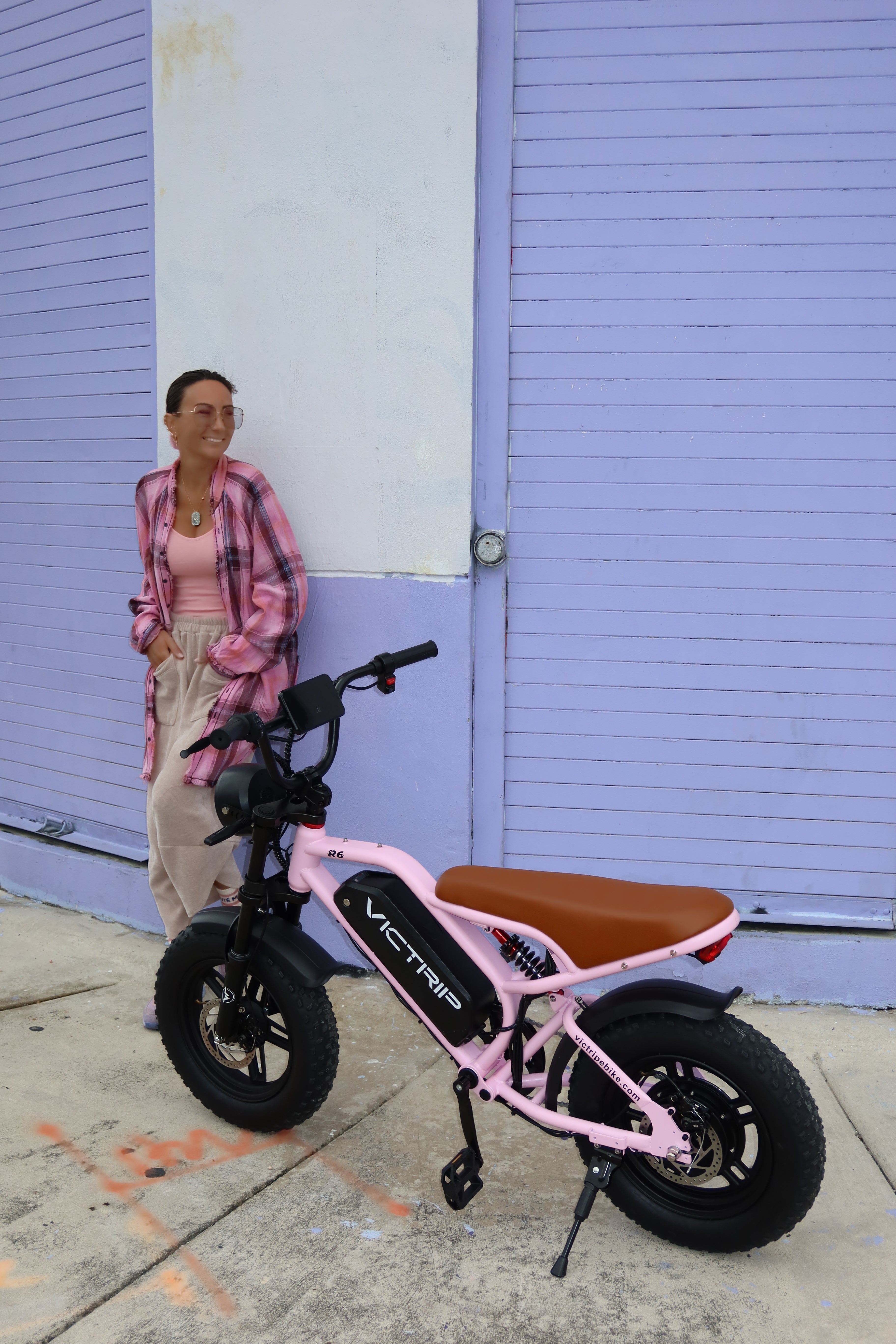
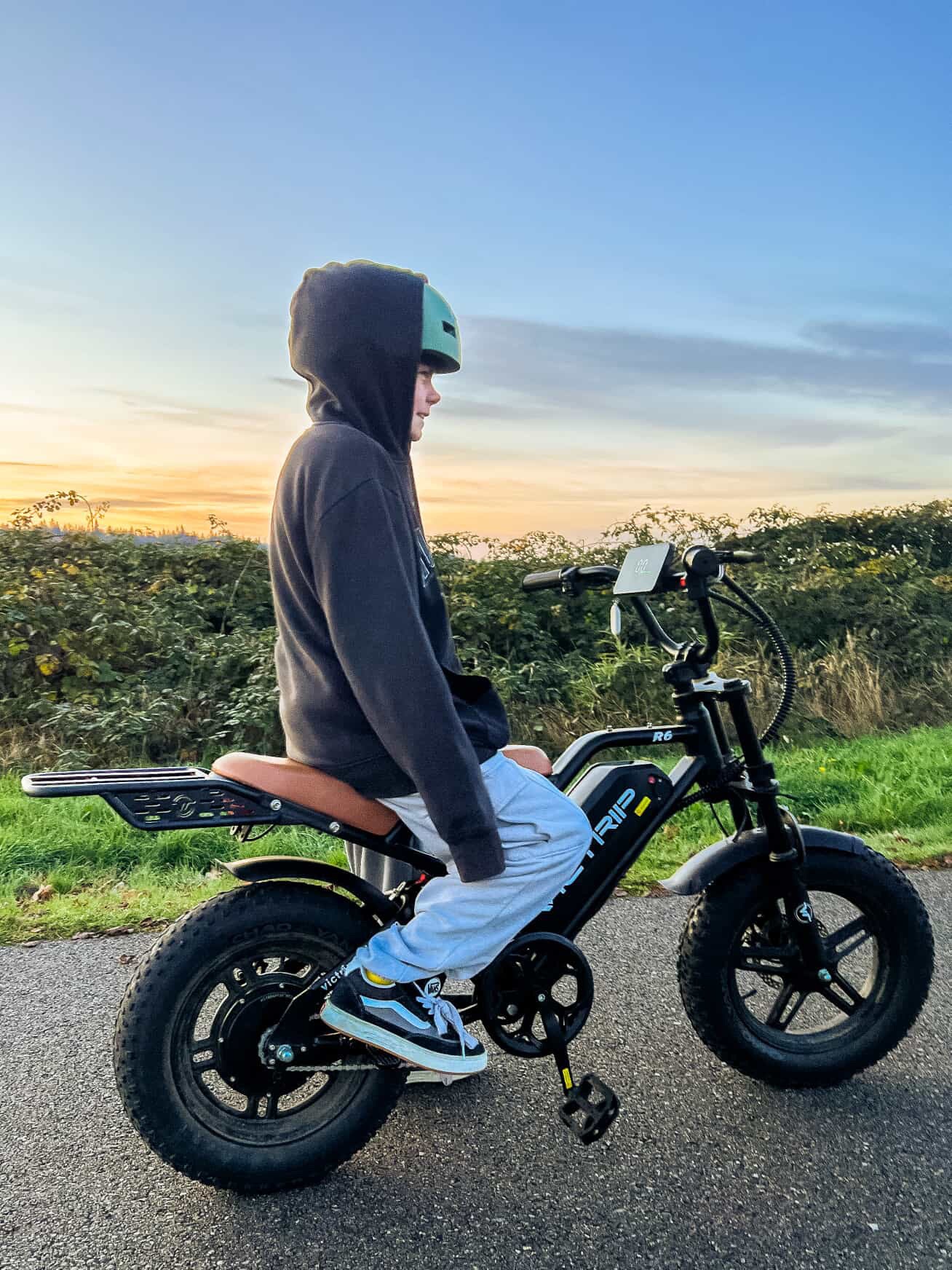
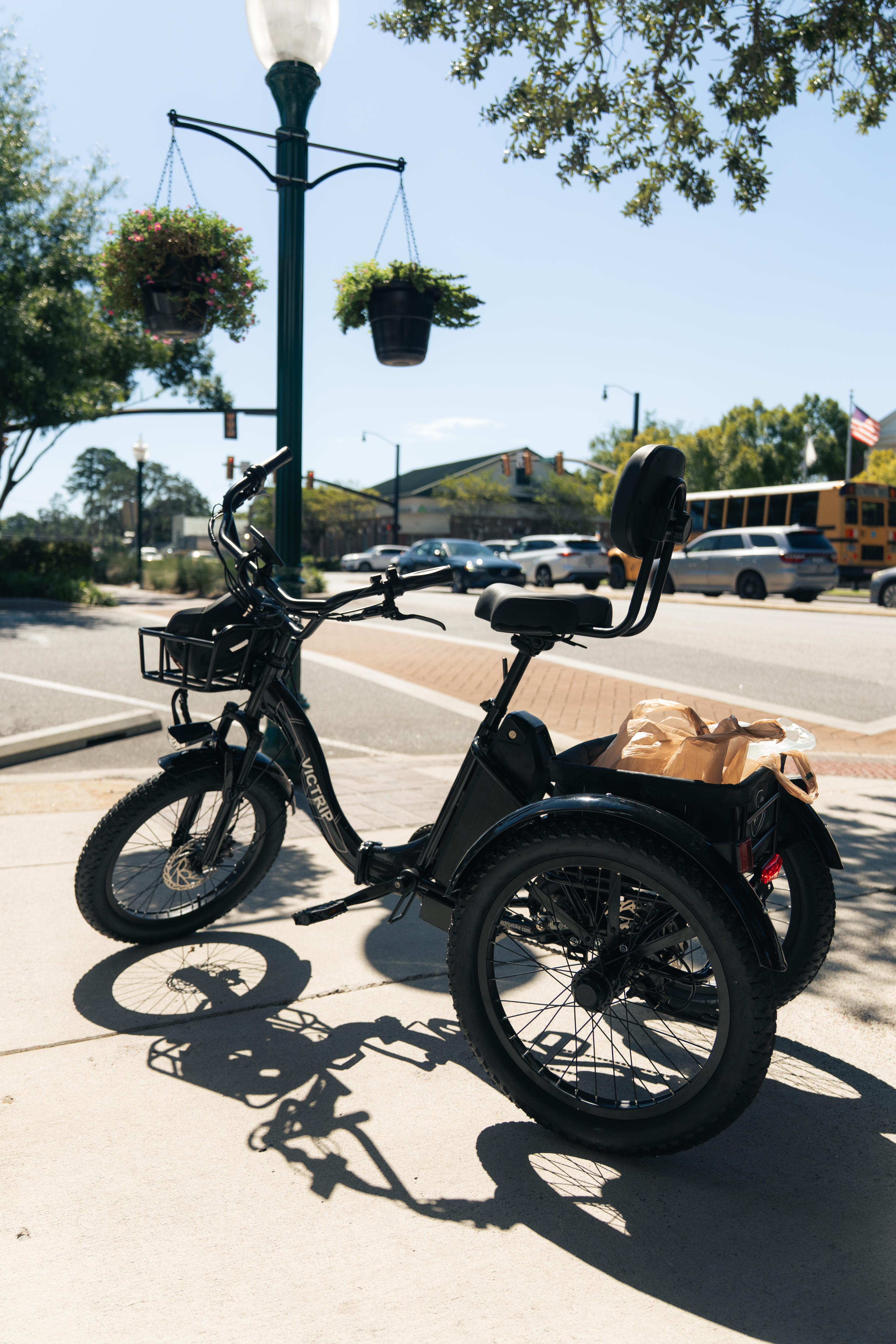
Share:
How Far and Fast Can a 1000W Electric Bike Go?
750W E‑Bike Speed Guide: How Fast Can It Really Go?